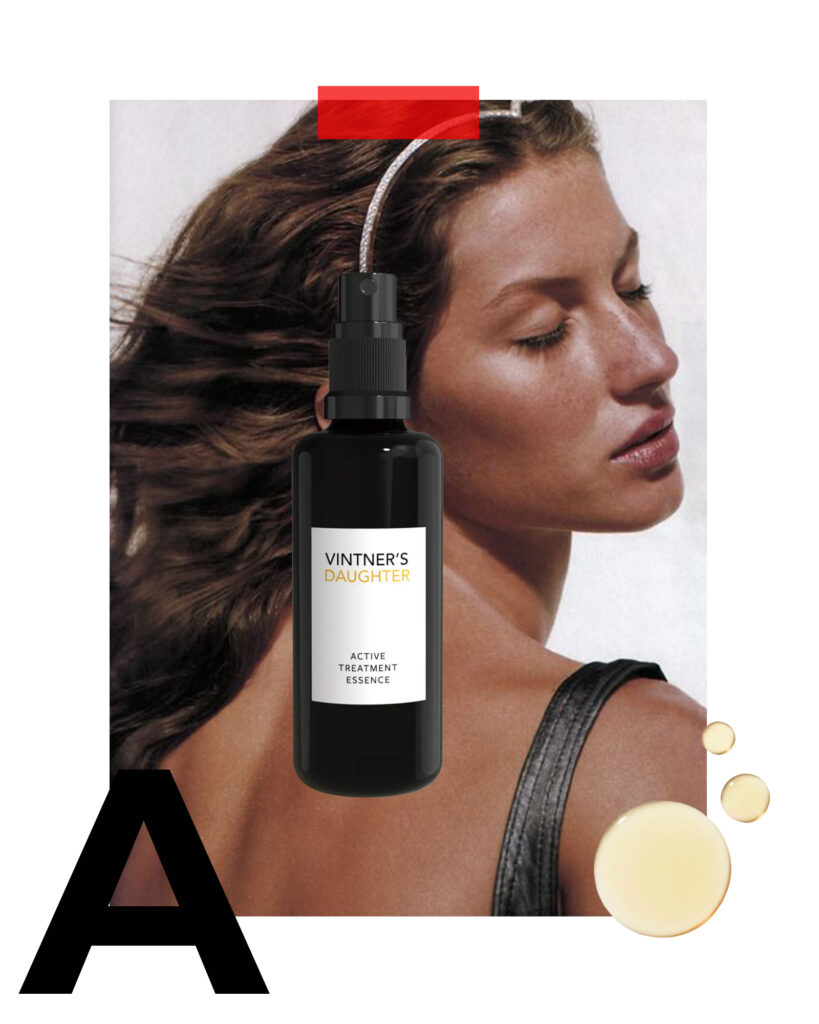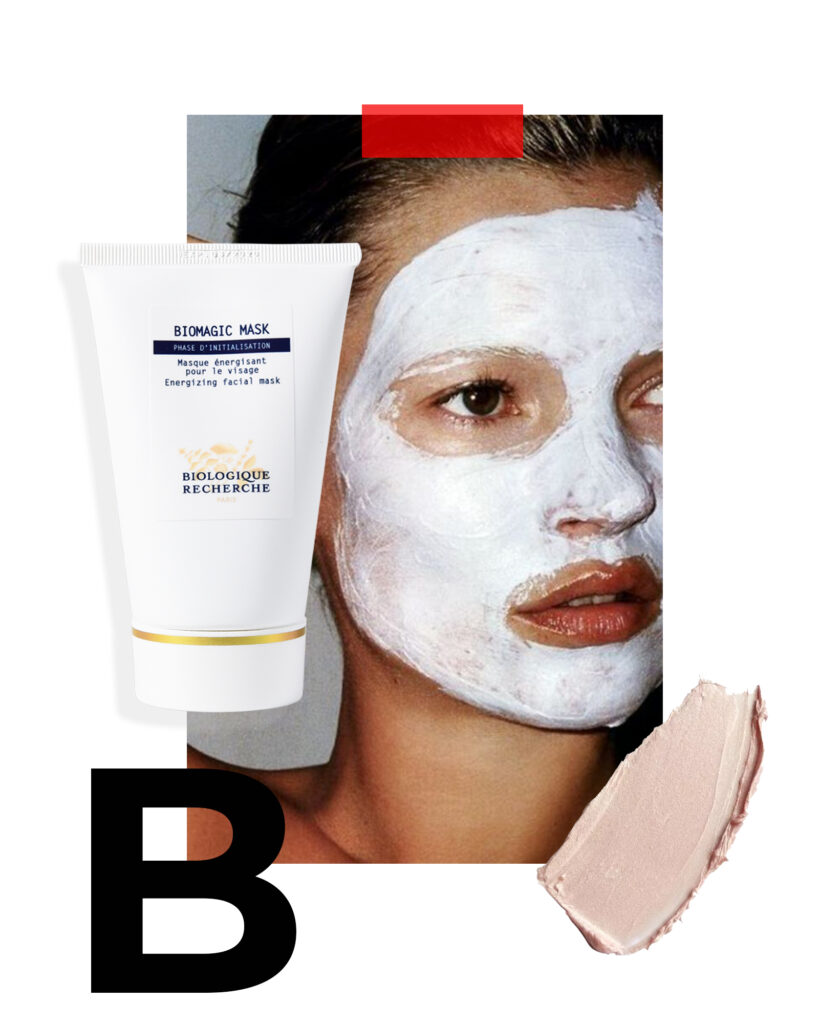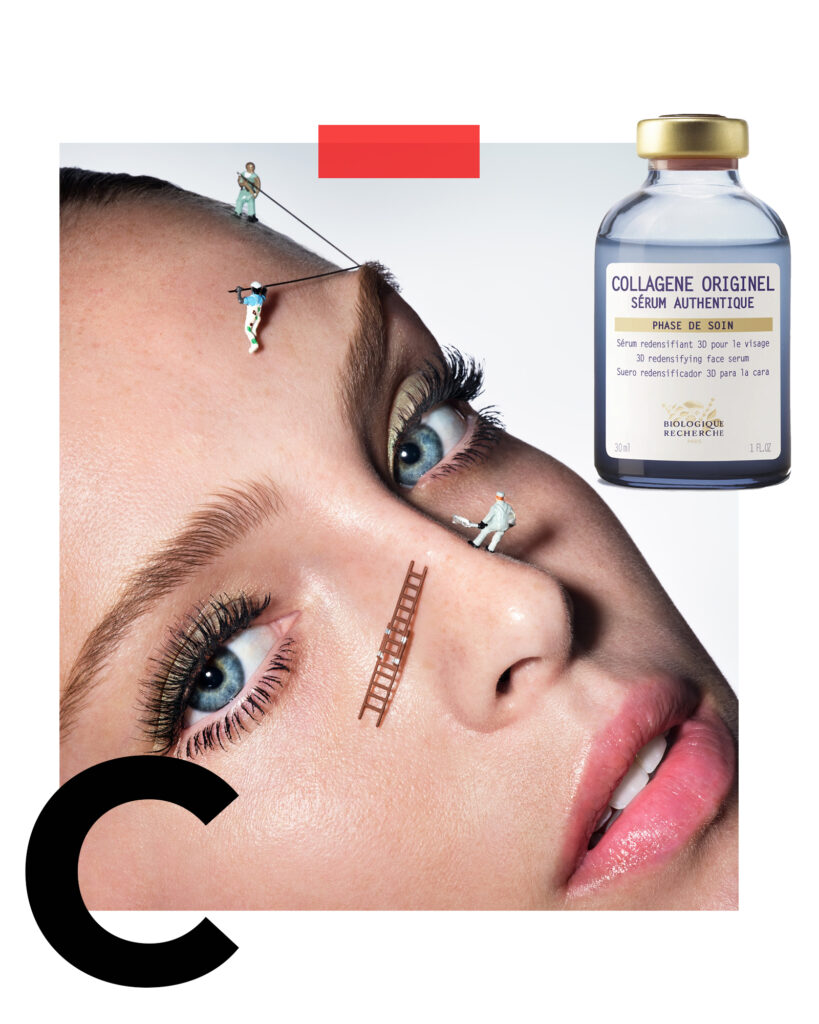Mandelic Acid
WHAT IT DOES:
One of the strongest AHAs, mandelic acid is often used to treat those with oily skin or who suffer from acne. Sometimes it is used as an alternative to salicylic acid as it is less irritating, but has a similar effect on blemishes and oil production.
HOW IT WORKS:
While mandelic acid is an AHA, it is said to behave more like a BHA, getting deeper into the cell and leaving a more lasting impact on sebum production. A truly effective exfoliator, mandelic acid is best used by those with excess oil, and avoided with those who suffer from dry skin.
MG SAYS:
Mandelic acid is derived from bitter almonds. It is an effective exfoliating medium for oilier, sensitive skin types and those with all skin shades. It can be used to clarify and refine the complexion as well as in treating minor cases of melasma and chloasma.
Marula Oil
WHAT IT DOES:
Marula oil is extracted from the kernels of the marula fruit and is a super lightweight, antioxidant-rich oil that offers an array of complexion benefits.
HOW IT WORKS:
Marula oil is composed of oleic acid, linoleic acid, procyanidin, catechins and flavonoids, which leave skin supple, soft and radiant. Marula oil is anti-inflammatory and rich in vitamins, antioxidants and amino acids which can help restore moisture and balance redness or irritation.
MG SAYS:
The impressive antioxidant composition of marula oil is partly attributed to the fact that it grows wild in the untouched, nutrient-rich soil of northern South Africa. The marula tree is so highly regarded that it is protected in South Africa by strict policies that ensure sustainable harvesting and environmental responsibility.
Melissa Officinalis (Lemon Balm)
WHAT IT DOES:
Melissa Officinalis is celebrated for its antibacterial and antioxidant properties. It is also commonly used as a brightening ingredient.
HOW IT WORKS:
Melissa Officinalis contains caffeic acid and ferulic acid, both widely famed antioxidants known to prevent cellular degradation caused by sun exposure, pollution and environmental aggressors. In addition, it also boasts high levels of flavonoids which strengthen blood vessels and stabilise elastin and collagen in the skin.
MG SAYS:
Melissa Officinalis is commonly known as lemon balm and has been used for thousands of years in natural skin care remedies. In modern times, pure lemon balm oil is one of the most expensive skin care ingredients on the natural market.
Micelles
WHAT IT DOES:
Most commonly found in micellar water for make-up removal, micelles are gentle on the skin while providing a thorough cleanse. They don’t strip the skin and leave it feeling supple and hydrated.
HOW IT WORKS:
Micellar water is made by combining electrically charged oil molecules which sit within water. When used on skin, the micelles grip onto make-up, dirt or other impurities and break them free, cleansing the face. There’s no residue left on the skin and the light texture ensures the pores remain clean and unclogged.
MG SAYS:
The first micellar waters were fashioned in France over 100 years ago to rescue delicate Parisian skin from the region’s infamously harsh water supply. They remain a staple in the French beauty regime and their ability to remove makeup, cleanse and soften in one simple, no-rinse step make them a must-have, especially for dry and sensitive skin.
Milk Proteins
WHAT IT DOES:
Milk proteins are great for sensitive skin and provide non-irritating hydration to dry skin. Derived from dairy, milk proteins are super nourishing.
HOW IT WORKS:
Milk proteins can hold an impressive amount of water, which in turn allows the skin to add hydration and moisture when applied topically. The end result is smoother skin and better texture.
MG SAYS:
Whether it’s a dry face or body, skin in need of gentle and nutritive effects can benefit from milk protein. Like all proteins, they’re non-irritating, making it an excellent option for those with particularly dry or sensitive skin.





